
I've always preferred starting my garden plants from seed, and a recent conversation with Anna Fialkoff on my Growing Greener podcast has opened up new horizons in that respect. Anna is the Ecological Programs Manager of the Wild Seed Project in North Yarmouth, Maine. She described to me her organization's program to make it easy for gardeners to sow native plants for their gardens.
This is important because so many of the native plants we find at local garden centers are propagated vegetatively. That is, they have been raised from cuttings or divisions of a parent plant, or even from tiny pieces of tissue cultivated in a laboratory setting.
The advantage of plants raised this way, from the seller' perspective, are many. When vegetatively propagated, each plant is genetically identical to its fellows, so they will all grow alike and mature into a closely similar look. Such predictability makes the plants easier to cultivate on an industrial scale.
Vegetative propagation also perpetuates from parent to offspring characteristics-such as a compact growth or larger, more colorful flowers that the seller believes will appeal to customers. Typically, these propagation methods also produce faster-maturing plants, and so they maximize profits.
This story is from the {{IssueName}} edition of {{MagazineName}}.
Start your 7-day Magzter GOLD free trial to access thousands of curated premium stories, and 9,000+ magazines and newspapers.
Already a subscriber ? Sign In
This story is from the {{IssueName}} edition of {{MagazineName}}.
Start your 7-day Magzter GOLD free trial to access thousands of curated premium stories, and 9,000+ magazines and newspapers.
Already a subscriber? Sign In

Pot It Up
Shake up the containergarden with theseNorth America –native perennials

THE GARDEN PATH TO PERDITION
I WAS CRUISING RIGHT ALONG, feeling okay about myself, when I came across a list of the Seven Deadly Sins.
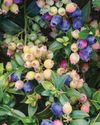
A Productive PATIO
Tiny fruit, vegetable and herb plants help gardeners maximize any sort of growing space
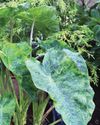
TROPICAL FUSION
A FUSS-FREE APPROACH TO USING BOLD TROPICAL PLANTS IN ANY TEMPERATE GARDEN

WINTER READING
Pass the time with any of these inspiring books
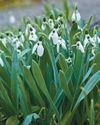
SENSING A PATTERN
Greg Coppa reflects on an odd weather year and what continued warming may mean for his Rhode Island garden
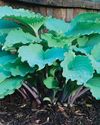
TOP-PRIZE PERENNIALS
A foliage masterpiece for shade and a late bloomer for sun

MARK WESSEL
What's new for fruit and vegetable gardeners?
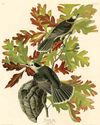
KINGS OF THE NORTHERN FORESTS
A look at the trees, shrubs and perennial plants that bolster life in Ecoregion 5

PROJECT FEEDERWATCH
Gardeners can help scientists know just where the birds are in winter